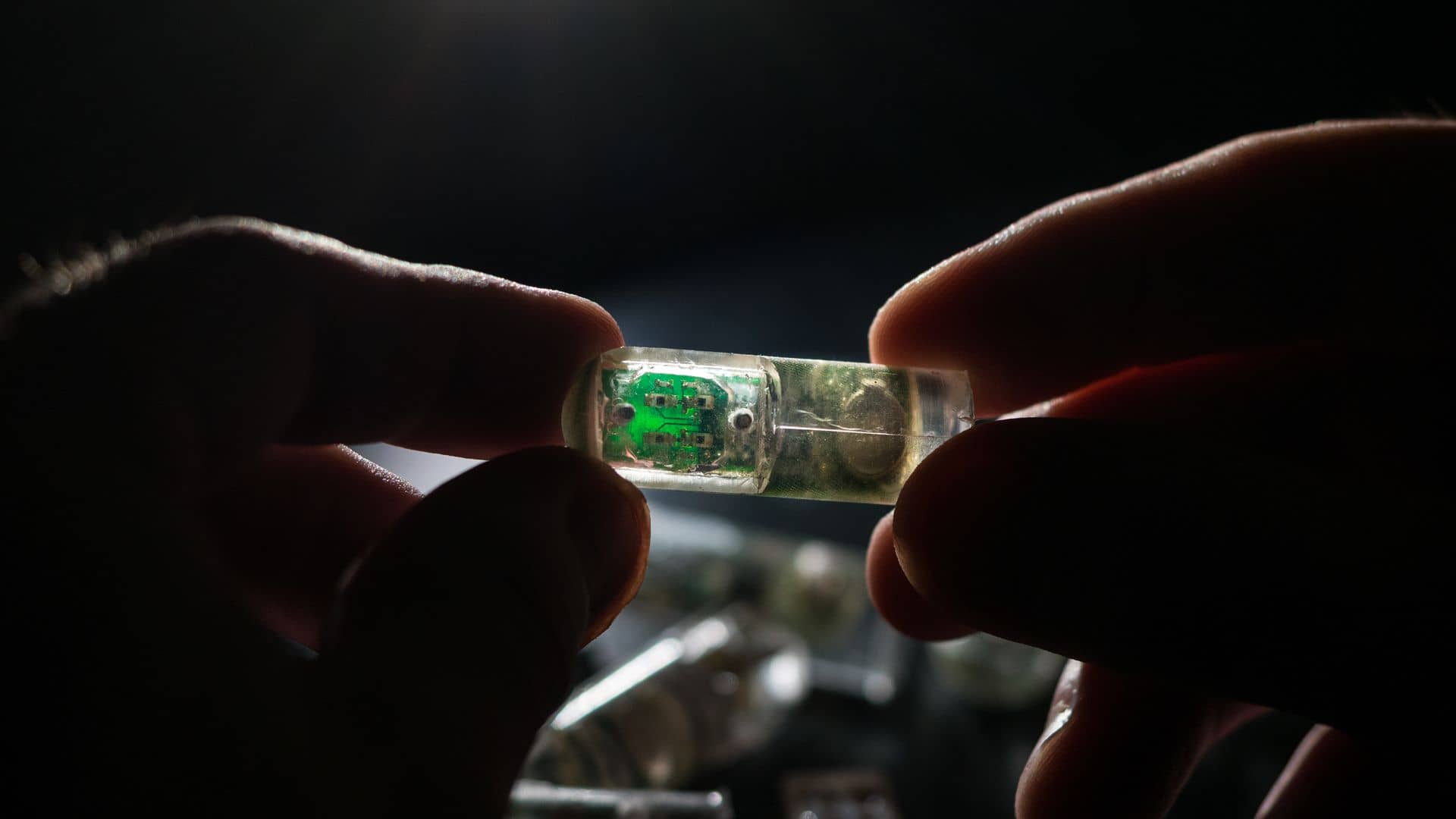Biosensors and all the types of biosensors are used to detect the presence or absence of biological material or else it is used to detect the presence of a biological analyte such as bio-molecules, the biological structure of a microorganism and more. Biosensors and bioelectronics is the analytical device that includes a combination of biological detecting elements such as a sensor system and a transducer. Biosensors having bio receptors and that are designed to interact with the specific analyte to produce a transducer.
What is bio-sensor?
The term “biosensors” is short for “biological sensors”. And each bio-sensor includes a biological component that acts as the sensor. An electronic component that detects passes out the signal. There are some biosensor elements, and there are ranges of substances may be used as the bio-element in bio-sensors.
Bio-sensor elements
We have listed below some of the bio-sensor elements below. They are nucleic acid, proteins including enzymes and antibodies. There is something called antibody-based biosensors and they are known as immunosensors. Plant proteins and lectins, tissue pieces, organelles, microorganisms are also called as bio-sensor elements.
How does the biosensor work?
The biosensor generating the signals when the sensor interrelates with the analyte and the analyte must be electrical, thermal, or optical. Then secondly it is changed into by means of a transducer into an electrical parameter.
Advantages of biosensor
The study about the biosensors is becoming highly complicated, mostly due to the combination of advances in two technical fields such as microelectronics and biotechnology. Biosensors are a very helpful device used to measure a broad range of analyte and it includes organic composites, gases, ions, and microorganisms.
History of biosensors
There was the first trial and it was carried out by Leland C. Clark. Initially, Clark used platinum electrodes for the research. The platinum electrode he used was very much useful for the detection of oxygen. He placed the enzyme glucose oxidase very closer to the surface of the platinum electrode. The enzyme activity was altered based on the oxygen concentration and glucose reacts with oxidase to provide gluconic acid. And it provided 2 electrons and 2 protons. This means that either the increase in hydrogen peroxides or a decrease in the oxygen could be considered for the glucose concentration.
Biosensors and their applications
The devices of biosensors contain a biological component and a physiochemical detector that is utilized to find out the analyte. These instruments have a broad variety of functions ranges from clinical applications, environmental applications, agricultural applications, and more. The devices are also used in the food industry. Some of the fields that use biosensors widely because of the vast advantages presented in the biosensors.
Hereby we have given multiple fields with many advantages they are like, health care monitoring, screening methods for disease diagnosis, clinical study, veterinary applications, industrial monitoring and processing, agricultural application, pollution control in the environment.
These biosensors are easy to handle, very cost-effective products. Biosensors are widely used for the purpose of accurate detection and they are very sensitive. There are many biosensor materials that are widely used in many industries.
The clinical and diagnostic industry highly depends on biosensors for disease diagnosis such as glucose monitor for detecting the blood glucose level for diabetic patients. And also many of the industries are highly dependent on the biosensors for many advanced processes.
Advantages in Industries
- Biosensors are widely used in the food industries to measure carbohydrates, alcohol and acid levels.
- It is also involved in the quality control process.
- The biosensor device is used in the fermentation process to check the production level.
It is highly used in fermentation technology for the purpose of yogurt, beer, and soft drink preparation. And also it is used in the process of detecting pathogens in fresh meat, poultry, and fishes.
Types of biosensors
There are some varieties of biosensors typically involves in the activities of day to day activities such as resonant biosensors, optical detection biosensors, thermal detection biosensors, ion-sensitive biosensors, electrical biosensors.
Resonant biosensors are used as an acoustic wave transducer along with bio-receptors. Interaction between a receptor and analyte causes changes in bio-receptor. Optical biosensors are worked by the help of the silicon wafers coated on it. Thermal biosensors are the next type that is used to monitor the heat reaction.
Ion sensitive bio-sensors are working on the principle of ions. And the electrochemical biosensors are working on the principle of generation of the ion molecules by means of many chemical reactions. And these types of biosensors are widely used in the food industries, environmental applications, medical applications, and in wastewater treatment.
For any other enquiries concerning about your application process or admission process we are here to aid you with the same and please contact 91 8681018401.








